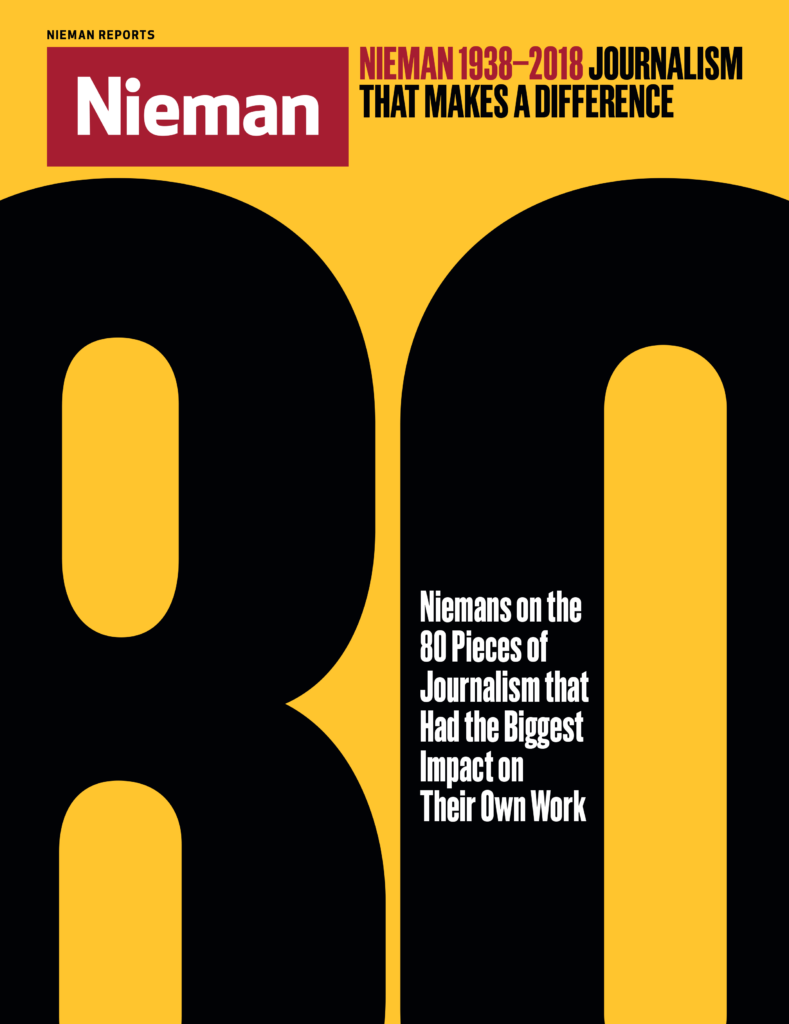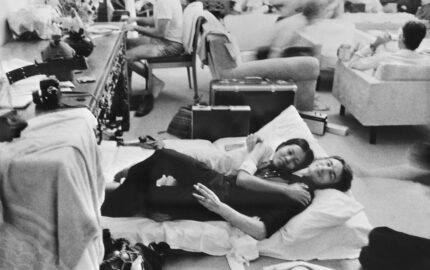
How are great journalists made? Often, it’s pieces of great journalism that help form them, influencing their lives or careers in an indelible way. To celebrate the Nieman Foundation for Journalism’s 80th anniversary in 2018, we asked Nieman Fellows to share works of journalism that in some way left a significant mark on them, their work or their beat, their country, or their culture. The result is what Nieman curator Ann Marie Lipinski calls “an accidental curriculum that has shaped generations of journalists.”
I had neverheard of the musician Sixto Rodriguez before watching “Searching for Sugar Man,” the recipient of both the American Academy Award for Best Documentary Feature and the British Academy of Film and Television Arts Award for Best Documentary in 2013. The film tells the story of Rodriguez, a Mexican-American singer, songwriter, guitarist, and poet from Detroit whose music was successful for a brief time in the U.S. But, after being dropped from his record label, Rodriguez disappeared, causing some to think he had committed suicide.
What the movie reveals is the mystery of what happened to this most thoughtful of singers whose music reflected the alienation of the inner city poor and the pain of being marginalized. Perhaps this is why Rodriguez’s music, unbeknownst to him, was resonating a continent away in South Africa, as the soundtrack of the apartheid resistance movement. Rodriguez was so popular during the mid-1970s in South Africa that his albums were said to be more popular than Elvis’s. Yet Rodriguez never benefited from this success or even knew about it. Instead he was scraping by as a laborer demolishing buildings in Detroit.
The late Swedish director Malik Bendjelloul brilliantly lays out this story. Through beautiful filming, animation, and interviews, “Searching for Sugar Man” evokes a deep connection to Rodriguez both as a person and musician. By understanding Rodriguez, one can understand his relevance in South Africa. But there’s something else at work in this film and I think that’s what makes it so special. The filmmaker knew he was dealing with someone extraordinary and he gave Rodriguez the space to reveal himself. No set-ups, no manipulation, no phony walks on the beach. Just Rodriguez, in his own world, for all the world to see.
Searching for Sugar Man
Directed by Malik Bendjelloul
Released Jan. 19, 2012
Excerpt
Stephen Segerman: To many of us South Africans, he was the soundtrack to our lives. In the mid-’70s, if you walked into a random white, liberal, middle-class household that had a turntable and a pile of pop records and if you flipped through the records you would always see “Abbey Road” by The Beatles. You would always see “Bridge Over Troubled Water” by Simon and Garfunkel. And you would always see “Cold Fact” by Rodriguez. To us, it was one of the most famous records of all time. The message it had was: “Be anti-establishment.” One song’s called “Anti-Establishment Blues.” We didn’t know what the word “anti-establishment” was until it cropped up on a Rodriguez song and then we found out, it’s okay to protest against your society, to be angry with your society. Because we lived in a society where every means was used to prevent apartheid from, you know, coming to an end, this album somehow had in it… lyrics that almost set us free as oppressed peoples. Any revolution needs an anthem and in South Africa, “Cold Fact” was the album that gave people permission to free their minds and to start thinking differently.



